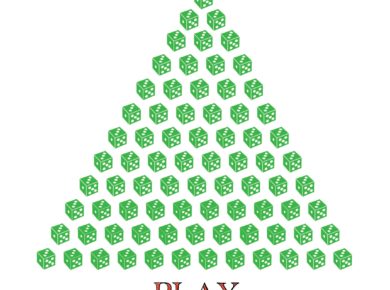L’importanza delle scelte
 [Potete gustarvi questo articolo in meno di 5 minuti … ma digerire bene i suoi contenuti richiederà senz’altro più tempo]
[Potete gustarvi questo articolo in meno di 5 minuti … ma digerire bene i suoi contenuti richiederà senz’altro più tempo]
Da giocatore appassionato ed esperto di giochi, pensando a quante cose il gioco (e il giocare) può insegnare a bambini ed adulti rimango sempre sorpreso quando scopro che nella nostra società (e per la maggioranza delle persone) “il gioco” è spesso sinonimo di “lotteria” o “azzardo”. E allora ecco che si sente dire che “Il gioco fa male” o l’invito a “giocare con moderazione” o altre cose del genere.
Sono però ancora più sorpreso, e deluso, quando scopro che scuole, enti, istituzioni o aziende “illuminate” che decidono di utilizzare il gioco come veicolo di promozione di contenuti alla fine spesso realizzano prodotti che altro non sono che la rivisitazione del gioco dell’oca: quasi a far credere che l’unico valore del gioco siano i contenuti che veicola e non il gioco ed il giocare in se. Penso ad esempio a “Un avventura con Tango” di Greenpeace, per mostrare un caso emblematico.
Si può davvero chiamare giocare lanciare un dado, muoversi su un percorso obbligato, terminare su una casella e vedere/leggere cosa succede ? Che ruolo ha il giocatore ? Che differenza c’è tra questo “giocare” e guardare la televisione ? Posso capire per un bambino di 4-5 anni a cui occorre insegnare la matematica di base, il rispetto delle regole e del turno (e anche per quell’età si può offrire davvero di meglio alle giovani menti): ma già per un bambino di 6 anni invitarlo a “giocare” a qualcosa dove non esiste nessuna possibilità di scelta è offensivo della sua intelligenza.
Secondo voi è davvero grande il passo dal gioco dell’oca alle slot machine ? Secondo me è minimo: non scelgo, ma guardo gli effetti della mia fortuna, sia nell’uno che nell’altro: in entrambi sono spettatore passivo e l’esito della mia partita è determinato solo dal caso. Nel primo la mia “dea bendata” è un dado, nel secondo una leva.
Ovvio che ci sono giochi in cui la casualità può entrare a diversi livelli ma, a mio parere, perché un gioco sia tale deve esistere una qualche forma di scelta da parte del giocatore, sia essa espressione di una strategia (nel migliore dei casi) o semplicemente una valutazione del livello di rischio da correre.
Il gioco quindi non può e non deve essere solo veicolo di contenuti ma il suo valore, anche a livello didattico, risiede nella possibilità di sviluppare le capacità tattiche e strategiche: incentivare la capacità di compiere scelte in funzione di situazioni e di un obbiettivi.
E allora, in maniera provocatoria, chiedo di abolire il gioco dell’oca e i suoi surrogati da tutte le scuole se non nella primissima infanzia. Rivendichiamo il diritto dei bambini (e degli adulti) ad un gioco intelligente in cui si possono compiere delle scelte consapevoli!
[You can enjoy this article in less than 5 minutes … but digest its contents, certainly will require much more time]
As a gamer and games expert, thinking about how much the game (and play) can teach children and adults I’m always surprised when I discover that in our society (and for most people) “game” is often synonymous with “lottery” or “gambling”. So we hear that “The game is bad” or an invitation to “play with moderation” or other such things.
I am even more surprised and disappointed when I find out that schools, authorities, institutions or companies “enlightened” who decide to use the game as a vehicle for promoting content at the end often realize products that are nothing more than the revisiting of the game ‘snakes & ladders” believing that the only value of a game are the contents it carries and not the game and the play itself. I think, for example, “An adventure with Tango” by Greenpeace, to show a case in point.
You can really call playing roll a die, move on a fixed course, end on a box and see / read what’s going on? What role does the player? What is the difference between this “play” and watch television? I can understand for a child of 4-5 years which need to be taught basic math, and compliance with the rules of the turn (also for that age you really can offer much more to theyr minds), but already with a child of 6 years inviting him to “play” to something where there is no choice is insulting his intelligence.
In your opinion is really great the distance between snakes & ladders and the slot machines? In my opinion, it is minimal: do not choose, but look at the effects of my fortune: in both games you are a passive spectator and the outcome is determined only by chance. In the first of my “luck godness” is a die, i a lever in the second.
Of course there are games where the randomness may enter at different levels but, in my opinion, because a game is that there must be some form of choice by the player, whether it be an expression of a strategy (at best) or simply an assessment of the level of risk to be run.
The game then can not and should not be just a vehicle for contents, but its value, even at the academic level, is the ability to develop strategic and tactical skills: enhance the capacity to make choices in terms of situations and a goals.
And then, in a provocative, asking to abolish the game of the goose and its surrogates from all schools except in early infancy. We assert the right of children (and adults) to a smart game where you can make informed choices!





